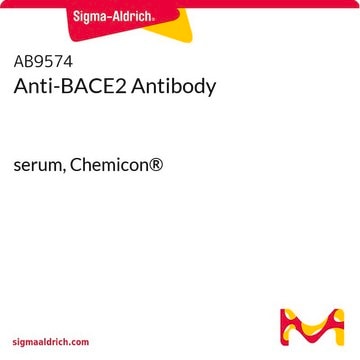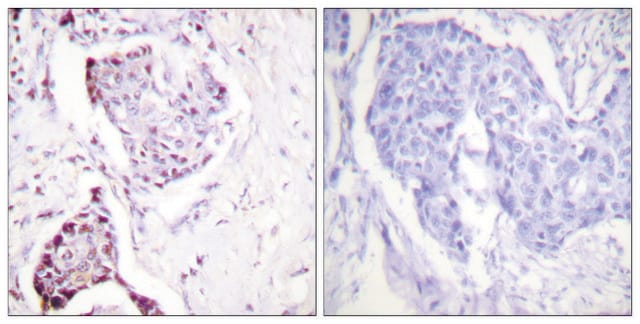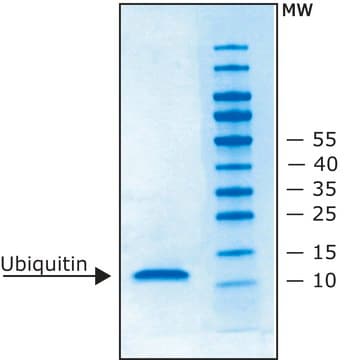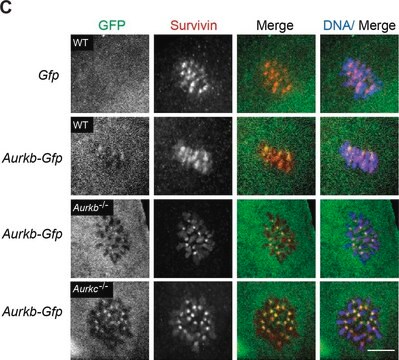662099
Anti-Ubiquitin Rabbit pAb
liquid, Calbiochem®
About This Item
Prodotti consigliati
Origine biologica
rabbit
Livello qualitativo
Forma dell’anticorpo
serum
Tipo di anticorpo
primary antibodies
Clone
polyclonal
Forma fisica
liquid
contiene
≤0.1% sodium azide as preservative
Reattività contro le specie
monkey, chicken, guinea pig, frog, yeast, sheep, rabbit, mouse, bovine, canine, E. coli, rat, human, hamster, Drosophila
Produttore/marchio commerciale
Calbiochem®
Condizioni di stoccaggio
OK to freeze
avoid repeated freeze/thaw cycles
Isotipo
IgG
Condizioni di spedizione
wet ice
Temperatura di conservazione
−20°C
modifica post-traduzionali bersaglio
unmodified
Informazioni sul gene
human ... UBB(7314)
Descrizione generale
Immunogeno
Applicazioni
Immunohistochemistry (1:200)
Immunoprecipitation (1:100)
Attenzione
Ricostituzione
Altre note
Hershko, A., and Ceichanover, A. 1992. Annu. Rev. Biochem.61, 761.
Hochstrasser, M. 1992. Curr. Opin. Cell Biol.4, 1024.
Jentsch, S. 1992. Annu. Rev. Genet.26, 179.
Hershko, A., et al. 1982. J. Biol. Chem.257, 13964.
Note legali
Non trovi il prodotto giusto?
Prova il nostro Motore di ricerca dei prodotti.
Codice della classe di stoccaggio
12 - Non Combustible Liquids
Classe di pericolosità dell'acqua (WGK)
WGK 1
Punto d’infiammabilità (°F)
Not applicable
Punto d’infiammabilità (°C)
Not applicable
Certificati d'analisi (COA)
Cerca il Certificati d'analisi (COA) digitando il numero di lotto/batch corrispondente. I numeri di lotto o di batch sono stampati sull'etichetta dei prodotti dopo la parola ‘Lotto’ o ‘Batch’.
Possiedi già questo prodotto?
I documenti relativi ai prodotti acquistati recentemente sono disponibili nell’Archivio dei documenti.
Il team dei nostri ricercatori vanta grande esperienza in tutte le aree della ricerca quali Life Science, scienza dei materiali, sintesi chimica, cromatografia, discipline analitiche, ecc..
Contatta l'Assistenza Tecnica.








